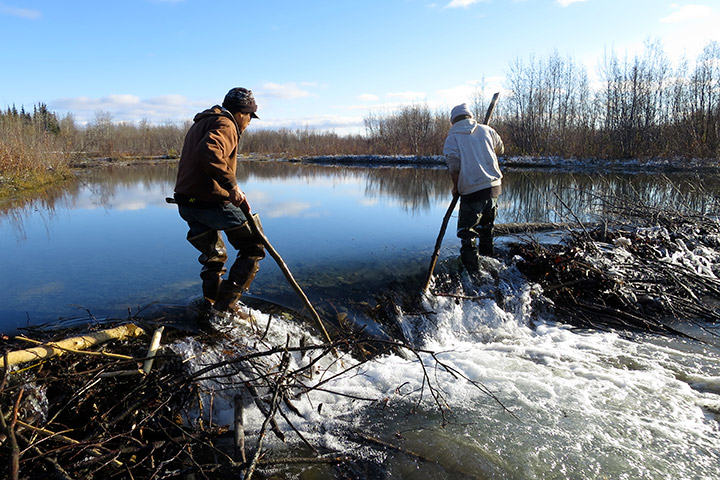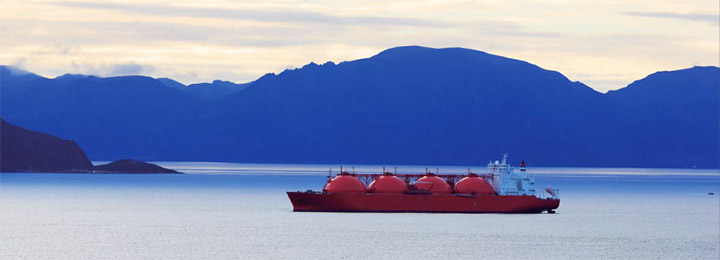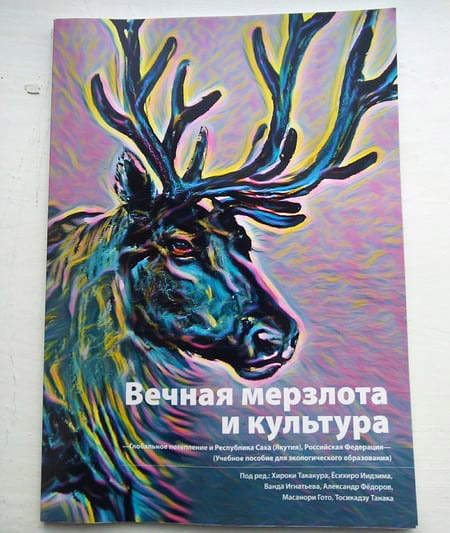Theme 7
People and Community in the Arctic: Possibility of Sustainable Development

Indigenous people in Alaska opening up gaps in beaver dams / Photo by Shiaki Kondo (Hokkaido University)
This theme is linked with other natural science research programs (theme 1 to 6) in some form, thereby playing a role in sharing research findings with our stakeholders in an effective manner. To consider the sustainability of economic development in the Arctic region, we conducted a research program from the following three perspectives: (1) utilization of the Northern Sea Route and resource development, (2) interaction between the natural environment and humans, and (3) Arctic governance. We also held a number of international symposiums and seminars to discuss subjects (1) through (3).
In subject (1), while conducting studies on the Northern Sea Route, resource development, and communication, we analyzed the circumstances of freight transportation; ascertained the present situation of, and explored the possibilities of, ice navigation; collected sea-ice information, and performed a cost analysis for freight transportation.

LNG carrier navigating the Arctic Ocean (Picture from the panel board "Our activities in the Arctic", made in 2018)
In subject (2), we carried out a field survey in the Sakha Republic in Russia, Greenland, and Alaska in cooperation with other natural science research programs. Researchers of cultural anthropology, geography, history, geology, and environmental ecology jointly investigated the situation of permafrost thaw in Sakha and associated impacts on local residents around the area. We also created teaching materials for environmental education. In interior Alaska and Greenland, we figured out the relationship between wild animals and humans, while also examining relevant events, such as calculating the whaling catch quotas and developing an environmental monitoring system. These initiatives are expected to become test cases for an organic integration of scientifically derived knowledge and the indigenous knowledge the natives and local residents have.

Teaching material for environmental education
Studies conducted in subject (3) include Arctic international law and policy, the Arctic security environment, governance of non-living resource development, and changes to Arctic international relations caused by global warming–driven changes in the geopolitical environment.
We will also create reports for policymakers based on dialogues with government officials through discussion meetings on the AC working group and round-table conference on Arctic between government officials and researchers.
The findings from this theme were published in February 2020 as a book titled People and Community in the Arctic: Possibility of Sustainable Development, edited by Shinichiro Tabata and Masanori Goto.
Research background and overview
Please see here.
Research achievements
Please see here.




